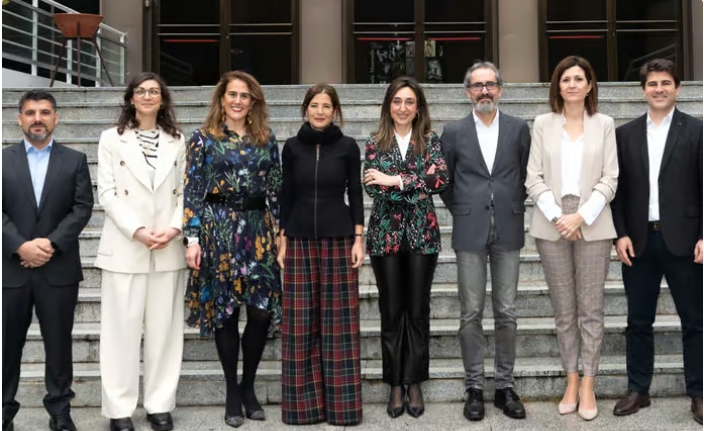Spain launches textile waste pilot programme
The Spanish Association for the Management of Textile Waste, FEMP (Spanish Federation of Municipalities and Provinces) and some of the largest fashion companies are joining forces to tackle textile waste ahead of the EU regulation for the Collective System of Extended Producer Responsibility (EPR) for textiles and footwear (SCRAP), which is expected to come into force in 2026. In a press release, they presented Re-viste, the name of the first pilot programme for textile waste collection in Spain. Re-viste aims to test the effectiveness of collection systems and is supported by major brands such as Decathlon, H&M, Inditex and Mango.

The programme will start in April 2025. Different collection methods will be tested in six Spanish municipalities with a total of around 300,000 inhabitants, distributed between urban, semi-urban and rural areas. These will involve containers on the street, in municipal cleaning points and in private spaces such as shops and schools. After collection, the textiles will be taken to sorting plants where they will be assessed and, if possible, sold to second-hand shops. Non-reusable garments will be sorted by material for recycling, with the aim of transforming them into new fabrics. The monitoring committee, made up of Re-viste and the FEMP Textile Waste Working Group, will monitor the correct implementation of the system. According to fashion companies, once the legislation comes into force, Spain will need one textile waste container for every 1,200 inhabitants.
Re-viste director Juan Ramón Meléndez emphasises that collaboration between municipal councils, producers and consumers is essential to enable more efficient waste management: “This pilot programme helps us move towards a sustainable model for textile collection and recycling. Our goal is to maximise reuse and improve recycling.”
Alejandro Dorado, commissioner for Circular Economy at the Ministry of Ecological Transition, added: “The textile sector plays a key role in the Spanish economy, accounting for 3 percent of GDP. With the creation of Re-viste and this pilot programme, we are taking important steps towards a more sustainable future for the sector.”





Post Comment